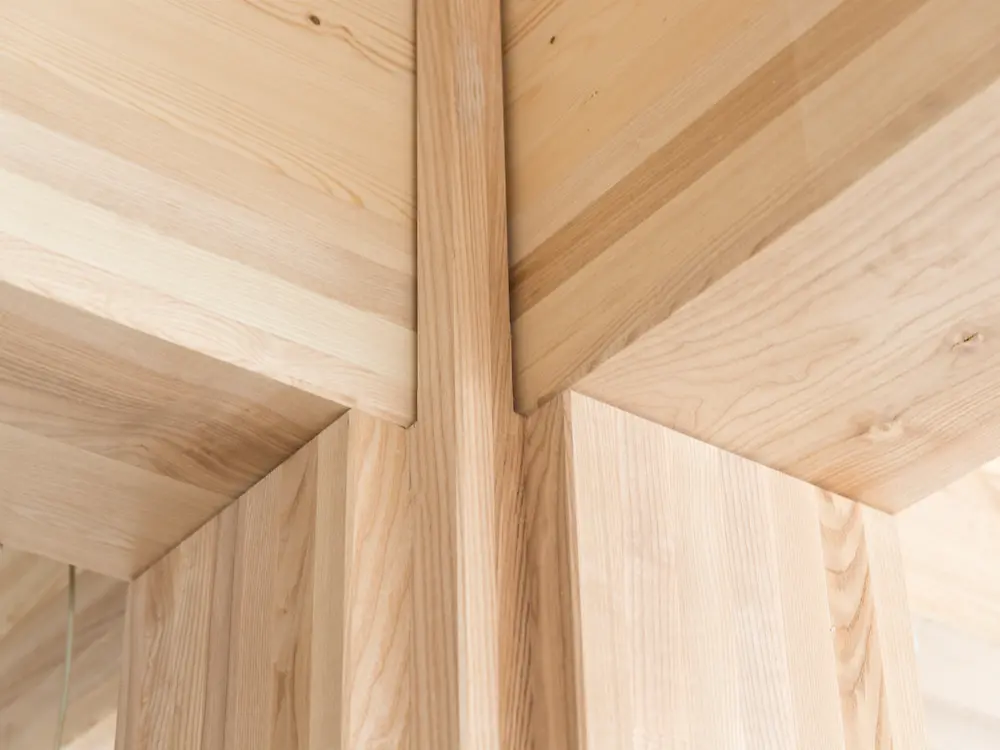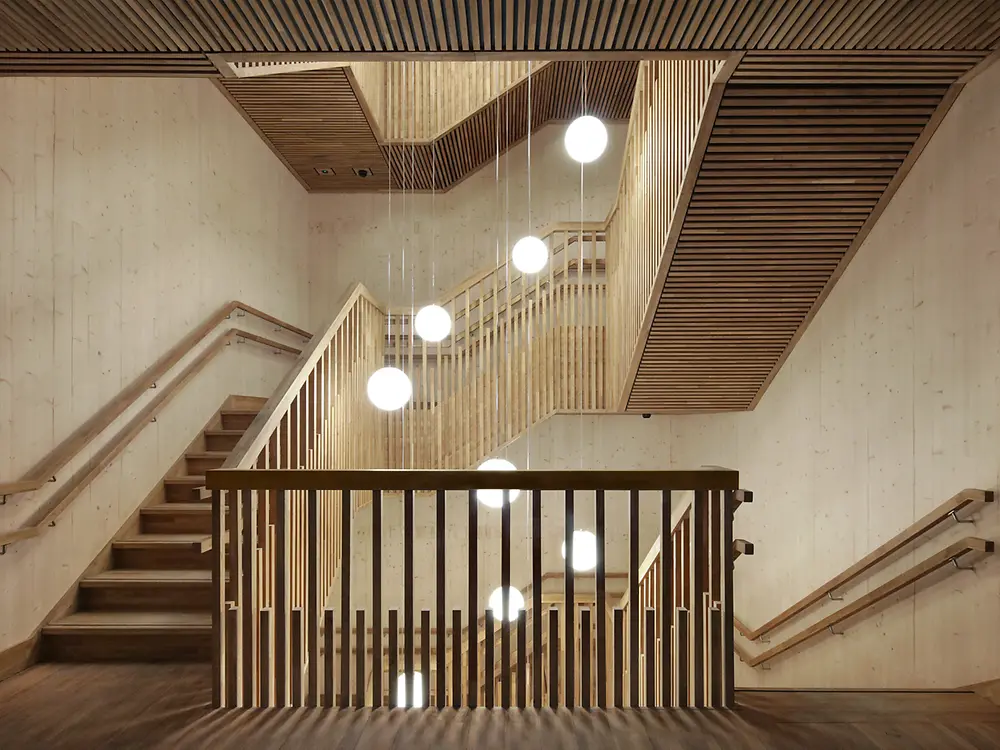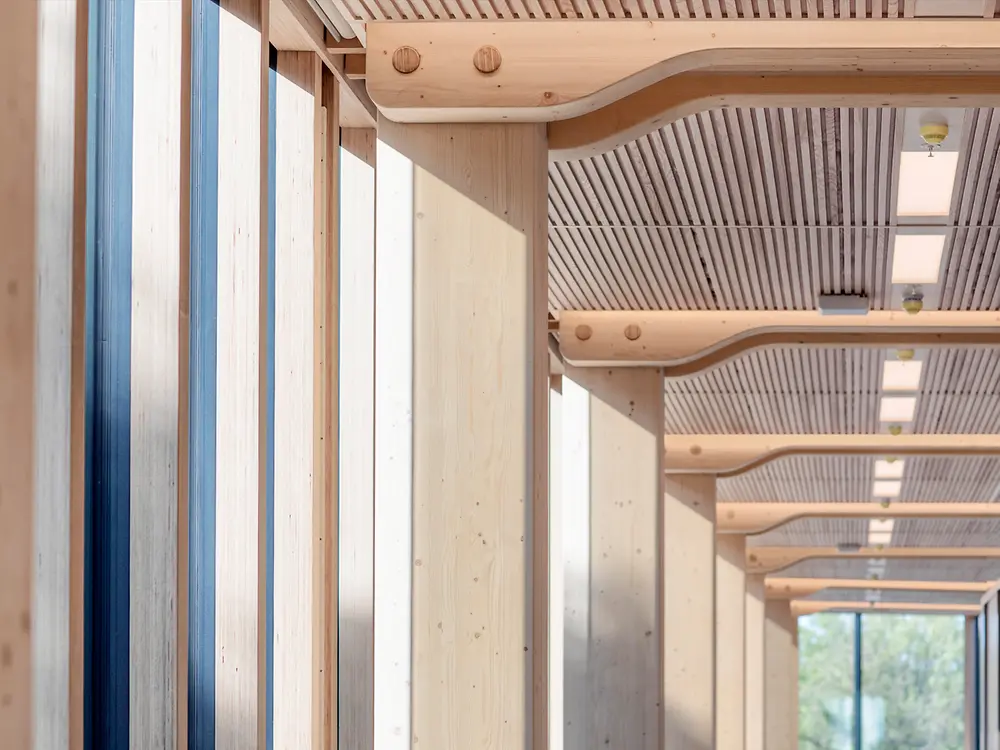Developed with bio-based materials, the new Loctite engineered wood adhesives, HB S ECO and CR 821 ECO, reduce CO2eq emissions by more than 60 percent compared to fossil-based alternatives1. Both ECO variants are already available for load-bearing timber construction. Henkel is thus creating added value for the industry and helping to make the use of mass timber even more sustainable.
"With Loctite HB S ECO and Loctite CR 821 ECO, we are launching two of our best-selling certified polyurethane (PUR) adhesives as bio-based variants. The solutions offer an excellent standard of performance. Our first bio-based PUR adhesives deliver the high levels of safety, durability, productivity and reliability our customers expect from Henkel adhesives," says Dr. Christian Fild, Global Director Engineered Wood at Henkel. "For both our direct customers and architects, the sustainability of the adhesives used plays a very important role. After all, they are a fundamental part of modern wood construction. Thanks to Henkel's commitment to pioneer innovative solutions, engineered wood adhesives are becoming a vital building block on the path to even greater sustainability."
Used globally, the Loctite HB S product series has introduced an even more sustainable option with the addition of the ECO variant to the product range. Loctite HB S ECO is a one-component polyurethane adhesive that is free of volatile organic compounds and solvents. The adhesive is manufactured with 63 percent bio-based materials2 and is certified according to the ISCC PLUS3 mass balance method. Compared to conventional HB S solutions, the ECO variant generates 66 percent4 lower CO2eq emissions.
As a bio-based two-component polyurethane resin, Loctite CR 821 ECO is an innovation that enables invisible bonding of hybrid wood construction elements. With easy product handling due to its excellent flow properties, the product is versatile and offers highest performance, including in certified load-bearing applications such as glued-in-rods. The ECO variant additionally improves the environmental footprint: CO2 emissions are 62 percent4 lower than a fossil-based version. The product was developed with 71 percent bio-based materials5 and is partly ISCC PLUS3 certified.
Beyond product manufacturing and properties, these innovative products also support sustainable and easy application. As before, Henkel has also ensured that all the necessary certifications for load-bearing timber construction are taken care of with its Loctite ECO products: ECO adhesives come with the appropriate documentation, including life cycle assessments and ISCC PLUS certificates. For ISCC PLUS certification, in a closed system according to the mass balance model, at the end of the production process it must be possible to remove exactly the specified amount of bio-based material from the process as was present at the start of the process. The mass balance model enables the production of solutions that are a mixture of bio-based and fossil materials. In this context, every participant in a product's supply chain must be certified from the point of origin to the warehouse. The relevant Henkel sites already meet these requirements today.
Henkel will be participating at the 27th International Timber Construction Forum in Innsbruck from November 29 to December 1, 2023. Meet with Henkel application and sales experts to learn more about the ECO solutions. Detailed information on the product innovations is available in advance here.










